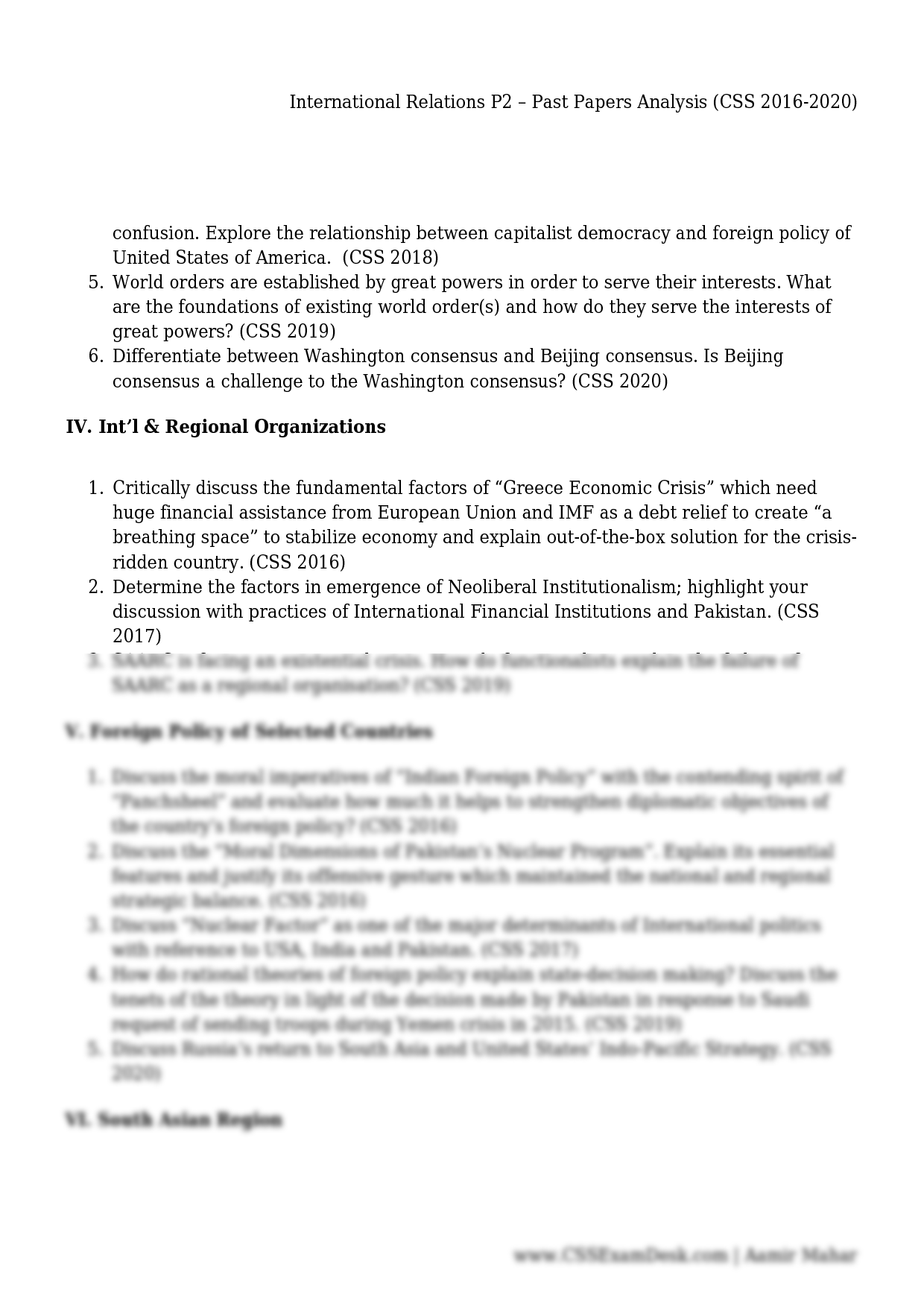Q.7 Critically discuss the fundamental factors of “Greece Economic Crisis” which need huge financial assistance from European Union and IMF as a debt relief to create “a breathing space” to stabilize economy and explain out-of-the-box solution for the crisis-ridden country. 2016

The Greece economic crisis is a complex issue that has been ongoing since the late 2000s. The crisis was triggered by a combination of factors that led to a severe recession, high unemployment rates, and an unsustainable public debt. In response to the crisis, the European Union and the International Monetary Fund provided Greece with a series of financial assistance packages to help stabilize the economy and provide debt relief.
The fundamental factors that contributed to the Greece economic crisis include:
- Government Overspending: The Greek government had a history of overspending, which led to a high public debt. The government continued to spend more than it was earning, resulting in an unsustainable fiscal deficit.
- Weak Tax System: The tax system in Greece was weak, with widespread tax evasion and a large informal economy. This reduced the government’s revenue and increased the budget deficit.
- Economic Mismanagement: The Greek government was accused of economic mismanagement, including corruption, nepotism, and a lack of investment in infrastructure.
- Global Financial Crisis: The global financial crisis of 2008 had a significant impact on Greece’s economy, which was already fragile due to the above factors. The crisis led to a contraction of credit, reduced investment, and a decline in economic growth.
The European Union and the International Monetary Fund responded to the crisis by providing Greece with financial assistance packages, which included loans and debt relief. These measures aimed to create a “breathing space” for Greece to stabilize its economy and reduce its debt burden.
However, the crisis in Greece is not only an economic issue but also a political and social one. The measures implemented to address the crisis have been controversial, with widespread protests and social unrest in Greece.
One out-of-the-box solution for the crisis-ridden country could be to focus on structural reforms, including improving the tax system, reducing government spending, and increasing investment in infrastructure. This would require political will and a long-term perspective, but it could lead to sustainable economic growth and debt reduction.
Another potential solution could be to promote entrepreneurship and innovation, which could create new jobs and stimulate economic growth. This would require investment in education and training programs and support for small and medium-sized enterprises.
In conclusion, the Greece economic crisis is a complex issue that requires a multifaceted approach to address. The European Union and the International Monetary Fund have provided financial assistance to Greece to create a “breathing space” for the country to stabilize its economy and reduce its debt burden. However, long-term solutions, such as structural reforms and promoting entrepreneurship and innovation, are necessary to address the root causes of the crisis and ensure sustainable economic growth in the future.